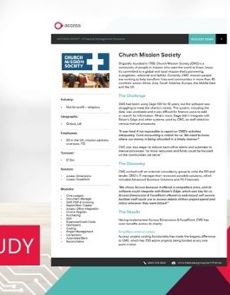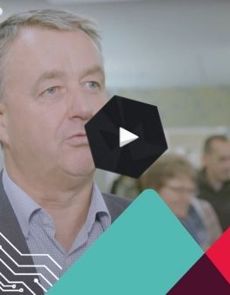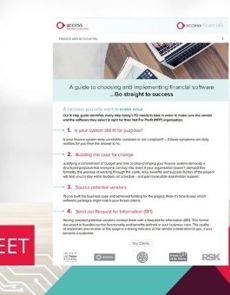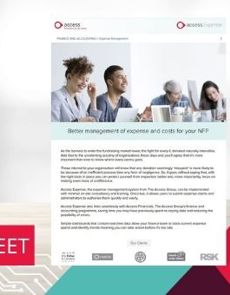4 things to consider before changing your charity accounting software
There’s a lot involved – and a great deal at stake – when it comes to changing your charity accounting software. It isn’t a project to take lightly. After all, your charity accounting software is at the heart of your organisation, ensuring funds are properly attributed and the organisation runs smoothly. So, before you make any decisions, here are four points to bear in mind:
1. Listen to your stakeholders
What tools do they need to get their jobs done efficiently? How can you help budget holders with event and project costing? How can you make it easier for volunteers and staff to submit expenses, log their time or book holidays? What support does your fundraising team need in terms of financial data and reporting? Are there specific reports required for external funders? Find out what is really required to improve the way the whole organisation operates before looking at software.
2. Ignore culture at your peril
This can be one of the biggest reasons why charity accounting software fails or doesn’t get fully-utilised. Make sure everyone who’ll be using the software is onside; you need their buy-in from the start of the project. Talk to them about how it’ll benefit them both in the short- and long-term. Encourage stakeholders to be involved in the project where this is possible – particularly in their area of expertise. People don’t like change so acceptance can sometimes feel like a slow process. Persevere because once they see how it’ll improve their work, they’ll be coming to you with ideas.
3. Pick the right partner
This is as important as choosing the right charity accounting software. The two go hand-in-hand. A good provider will listen to what your organisation needs – not just for the finance function but for the whole organisation. If all they’re interested in is pitching their software, then walk away. This is a bad sign; they should listen first and work with you every step of the way, coming up with ideas and solutions that are in the best interests of your organisation. Remember, this is an investment and partnership for the long-term.
4. Don’t change everything at once
With a clear idea of what’s required for the organisation, it’s important to take a phased approach. Many software projects fail because they’re not properly scoped out in the first place and because organisations take on too much at once. Set yourself up to succeed. Once you have the first phase live, you can add new functionality and tools. Build upon the success that you’ve already achieved. It not only makes it easier for everyone in the organisation to adapt to the new systems but helps to compound the results too.

See the bigger picture with Access Financials
Explore resources
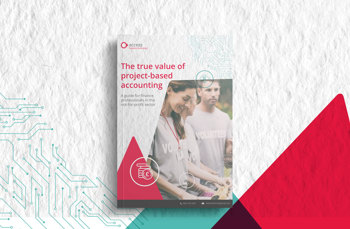
Increase control and oversight on your accounting projects
A guide for finance professionals in the Not For Profit sector looking to understand the principles of project-based accounting and the benefits for NFP finance teams – a must-read to increase control and oversight on your projects.
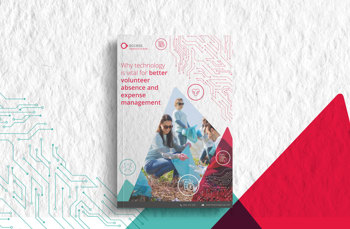
Why technology is vital for better volunteer absence and expense management
This guide explains how technology holds the key to helping organisations to manage volunteer absence and expenses more efficiently.

Charity finance management solutions for Not For Profit organisations
Watch this video for a short overview of Access Financials, our cloud-based financial management system designed with the specific challenges of Not For Profit charities in mind.

8 steps to follow when reviewing your finance software
A guide to choosing and implementing the right financial software for your organisation.

 AU & NZ
AU & NZ
 SG
SG
 MY
MY
 US
US
 IE
IE



